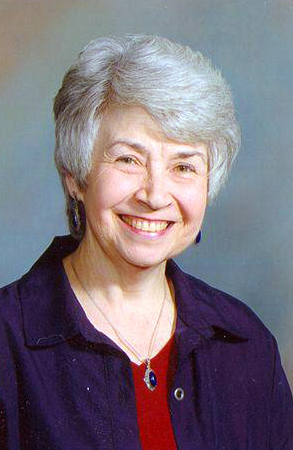
GARLAND, Texas (BP)–Having lived in the Middle East for the past 10 years, my husband and I experienced many interesting and even inconsistent behaviors with our Muslim friends during their holy month of Ramadan. Ramadan lasts for 30 days and occurs approximately two weeks earlier each year with the exact dates determined by the sighting of the moon. This year Ramadan begins around Aug. 22.
This is a special month for our Muslim friends because they believe they can become closer to Allah (God) only during this time. They further believe they have a better chance of God hearing and answering their prayers. Everything must be observed according to the Koran and the teachings of their prophet, Muhammad. As you might imagine, Muslims are highly legalistic about observing Ramadan.
No one is allowed to eat or drink anything from one hour before sunrise until about 30 minutes after sunset. Foreigners like us also must not be seen eating or drinking during that time or, in some countries, we may be brought before the authorities and temporarily imprisoned. Even though we often carry water hidden in a bag or purse, we usually don’t drink in front of our Muslim friends because we realize how thirsty these folks must be. All restaurants are closed except for a few located in hotels. In the afternoon, food can be ordered, but it must be taken home to eat behind closed doors.
During Ramadan many of our Muslim friends will not even swallow their saliva. While it’s daylight, no one is allowed to go to a dentist or to receive injections. One of our neighbors was receiving B12 injections; her sheik (a holy man) would allow her to receive them only after sunset and the evening meal. The only exception to this rule involves a person with a chronic disease who must be on medication to survive. However, even then the person must receive permission from the sheik.
The evening meal, or “breaking the fast,” is called Iftar. In one of our countries a cannon was shot to indicate the beginning time for the evening meal. We often sat in a circle on the floor with the food placed in front of us as we waited to hear the cannon.
In another country, Iftar was announced on television and from the mosque. The meal began with ritualistic foods such as dried dates and figs followed by special salads, rice dishes and either lamb or chicken. Usually the same thing is eaten every day. Since our Muslim friends are required to be generous during Ramadan, they feel inclined to invite foreigners to break the fast. One family even brought us food every three to four days, which we actually looked forward to because the food was delicious.
However, we also experienced challenges. Some of the nicest people often experienced a complete personality change when they drove an automobile. They would become aggressive and angry. During Ramadan we knew to stay off the road between 2:30 and 4:30 in the afternoon because people were getting off from work, visiting the supermarket and rushing home to prepare the evening meal. These once-precious people became so hungry at this point that irritability and grumpiness seem to become the norm. We also saw numerous motor vehicle accidents during this time of day.
Shopping also became more difficult because of shortened work hours during Ramadan. Many times we could only shop late in the afternoon or at night because most of the stores were closed during the day.
This illustrates the basic reversal of days and nights during Ramadan. After the evening meal, our friends would go shopping, run errands, eat again around midnight, stay up and talk until 3 or 4 am, eat breakfast before sunrise, and then go to bed. In a couple of hours they would awake to get the children off to school. Some would then go to work; others would go back to bed. This lack of sleep also added to the additional irritability.
Even with all of these challenges, Muslims believe Ramadan truly is a beautiful time. For us, the only beautiful result of Ramadan was the fellowship with different families, the delicious meals and the view of our friends in their new clothes, which was part of the Eid celebration that lasts for about four days after Ramadan.
Despite the parts that we enjoyed, we, as Christians, know that this holy month is basically a “chasing after the wind.” Especially during Ramadan, please pray for our Muslim friends. We love them and want them to know Jesus, our One and Only, so they will know the real Truth and be discipled.
–30–
Anne Fortenberry has served as a Southern Baptist missionary, a university lecturer and division chair, and a health care consultant. She and her husband Archie are now back in the United States after nearly a decade serving in Muslim countries. She recently has released “Faith that Works: A Topical Study on the Book of James” (Hannibal Books, 2009).
















